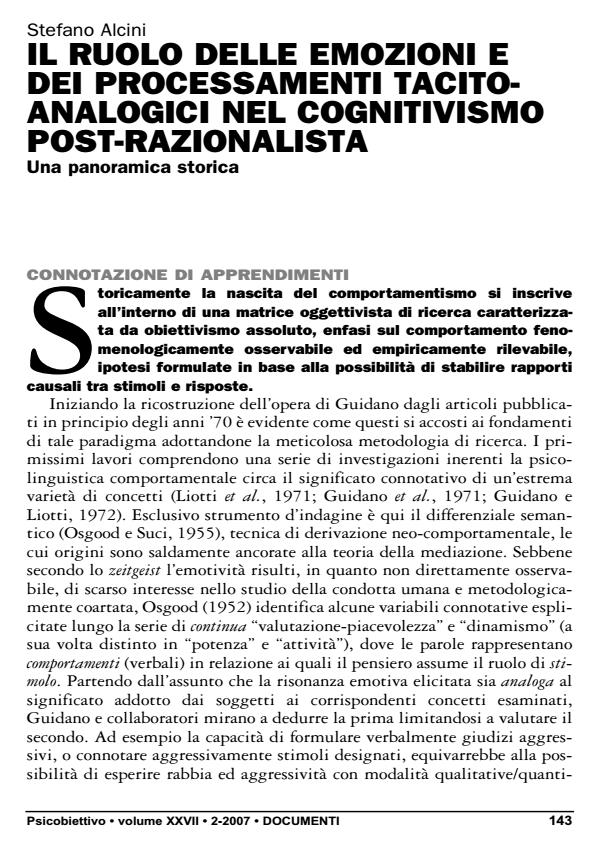Il ruolo delle emozioni e dei processamenti. Tacito-analogici nel cognitivismo post-razionalista. Una panoramica storica
Titolo Rivista PSICOBIETTIVO
Autori/Curatori Stefano Alcini
Anno di pubblicazione 2008 Fascicolo 2007/2
Lingua Italiano Numero pagine 28 P. 143-170 Dimensione file 475 KB
DOI
Il DOI è il codice a barre della proprietà intellettuale: per saperne di più
clicca qui
Qui sotto puoi vedere in anteprima la prima pagina di questo articolo.
Se questo articolo ti interessa, lo puoi acquistare (e scaricare in formato pdf) seguendo le facili indicazioni per acquistare il download credit. Acquista Download Credits per scaricare questo Articolo in formato PDF

FrancoAngeli è membro della Publishers International Linking Association, Inc (PILA), associazione indipendente e non profit per facilitare (attraverso i servizi tecnologici implementati da CrossRef.org) l’accesso degli studiosi ai contenuti digitali nelle pubblicazioni professionali e scientifiche.
There are few dimensions of the human experience that, like emotions, boast in the history of mankind knowledge such a continuity in terms of research and wide speculation. Regarding cognitive Post-rationalist approach, affectivity plays a central role either for the stability of the Self on a personological level, and the therapeutical change on a clinical one. Acknowledging affectivity as the most distinctive experiencial domain in Vittorio Guidano’s model, we’ll review the main points that made it so fondamental; a sort of critical and longitudinal journey starting from the statement: emotion (..) can’t be attacked as such, but it can only be modified through the restructuring of the belief that determines it (Guidano e Liotti, 1979, p. 90), reaches the extreme opposite: no change seems possible without emotions (...) while thinking usually changes thoughts, only feeling can change emotions (Guidano, 1991, pp. 60-61). Key Words: Emotions; Tacit Dimension; Analogical Processing; Guidano V.F.
Stefano Alcini, Il ruolo delle emozioni e dei processamenti. Tacito-analogici nel cognitivismo post-razionalista. Una panoramica storica in "PSICOBIETTIVO" 2/2007, pp 143-170, DOI: